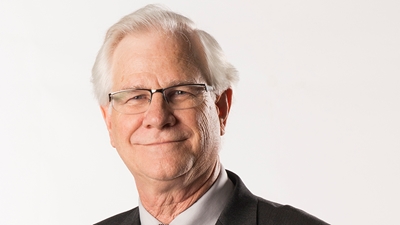Mind of Jacka: When the Truth of the Audit is Revealed
Blogs Mike Jacka, CIA, CPA, CPCU, CLU Mar 10, 2022

Mike Jacka IA, CPA, CPCU, CLU
Author Norman Mailer was talking with French novelist Jean Malaquais about the craft of writing. Malaquais told him "I am not a natural writer. There are even times when I detest this torture. I achieve so little of my aims."
Mailer asked, "Why not do something else?"
"Never," Malaquais replied.
"Never? Tell me why?"
"The only time I know the truth is when it reveals itself at the point of my pen."
True confession time: The way many of these blogs come together is very close to what Malaquais said about writing. Sometimes I don't know the conclusion I will reach until that conclusion reveals itself on the computer screen. I start at point "A" fully expecting to arrive at point "B," only to arrive at Omicron Persei 8. This post will be a perfect example. While I think I know what the above story has inspired in me, there is an excellent chance that, as I think and type, my thoughts will veer off in unexpected directions searching unformed ideas. More than likely, the actual conclusions and "truths" will look nothing like the ones I'm thinking of now.
In that vein, when does the truth of the audit reveal itself? Is it during the interview process as you learn what is and is not happening? Is it during testing where data and statistics paint their own picture of reality? Is it in client meetings as issues and resolutions are explored? Or is it when the final review note is completed, the database is closed, the corrective actions have all been corrected, and the CAE beneficently looks down from above and says, "Well done, good and faithful auditor"?
Of course, the "truth" is effectively accomplished when these all work together, providing support for the final conclusions. However, I would argue that the actual finality of thought — the point where it all coalesces into the "truth" of the audit — does not occur until our fingers are on the keyboard and our thoughts, discussions, and decisions come together to create the final black-and-white image of letters on the screen. That is when we take all the latest learning and ideas, bringing them together to build the final "truth" that will be shared with the world.
Do not misunderstand me. I am not saying that the internal auditor should approach the unwritten report tabula rasa. As I've said many times, one of the greatest problems in report writing is not with the writing, but with an inability to effectively audit. (For example, if you have not already sussed out the five Cs before you start drafting the report, you will have a bad report, a bad audit, and a bad resume when you look for a new job.)
But there is an amazing power that occurs as words are memorialized on any kind of document. Even if the auditor has complete knowledge of what is going on and how it can be made better, the actual application of letters to the virtual page brings a new life to what is being said.
As an example of the power that occurs when words become physical, take discussions of audit results with clients. It can be a challenge to get their agreement on what should be included in the report. But getting agreement during the meeting and getting agreement once those thoughts are put in writing are two different things. No matter how much you emphasize what the report will contain, that agreement can disappear like vapor in the morning's light when the client sees it in writing. The power of the spoken word pales in comparison to that of the written word.
So, we have to be aware of the power our written words can have on others. But we also have to realize the power the act of writing can have on us. The act of writing forces us to revisit what we have learned, the logic of our conclusions, and the semi-final assessments we are about to put forward. We have to realize that, when we start writing, our current belief in the truth of the situation may change as all these pieces come together in that specific document at that specific moment.
A suggestion. As you write, take short breaks and be aware of what is happening. Give yourself the time to let revelations sink in. And allow the understandings resulting from the act of writing to impact the report that is being written.
No report is perfect. None of our work is ever done. We are constantly learning, even up to the final draft. But recognize the power of the written word on our clients and on ourselves. And get as close to that perfection as you can, knowing that, by the time the next report comes around, everything will probably be different.
Trust me. Your reports will be better — more complete, more effective — if you allow yourself the luxury of thinking while you write.
A quick editorial note. Nope, I had no idea this is where this piece would wind up. But it still represents the thoughts as they occurred, morphed, and came into their current existence. I was exploring as I wrote and writing as I explored. And the resulting "truth," whatever it might be, was revealed by my pen without me knowing what was in store.
Try it yourself; it can be fun.


